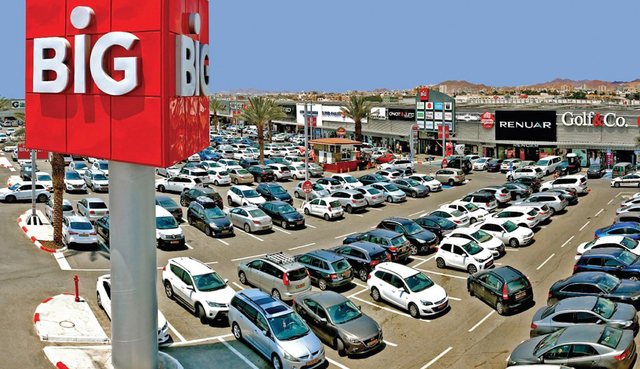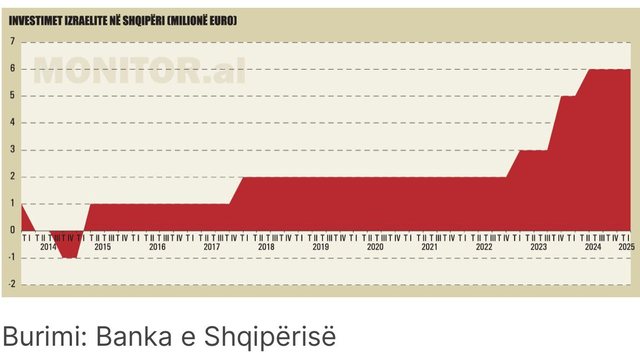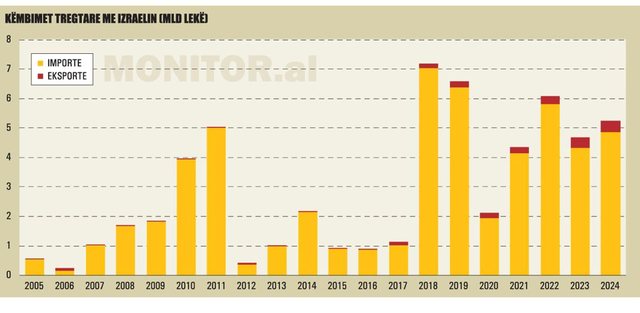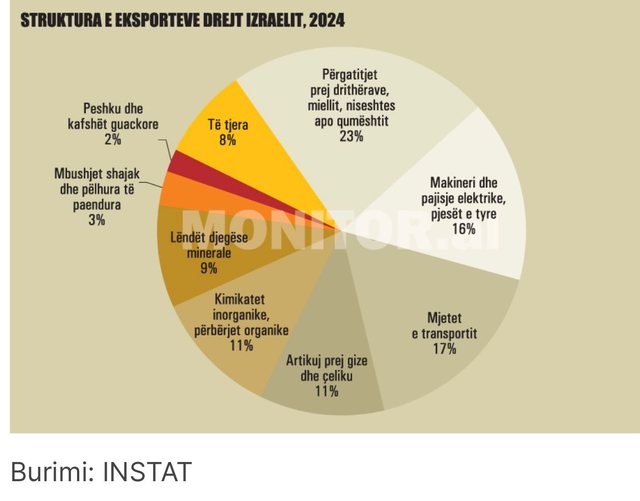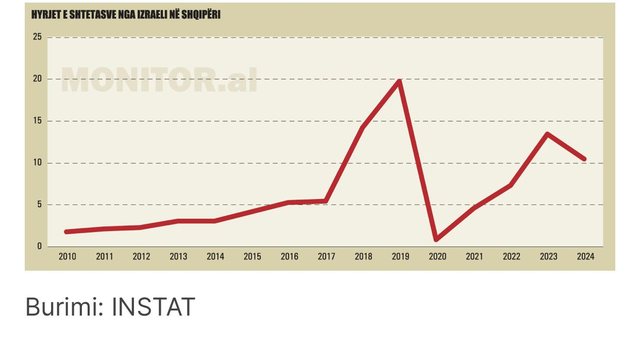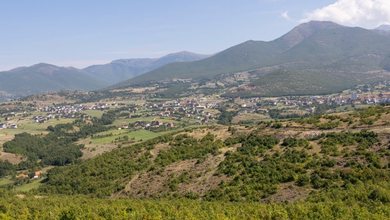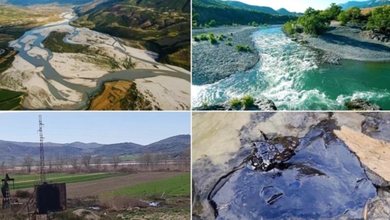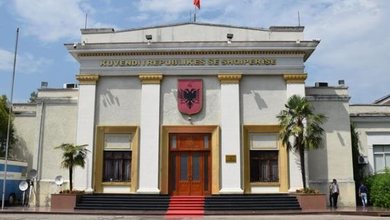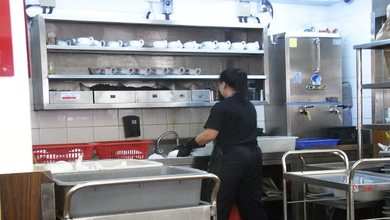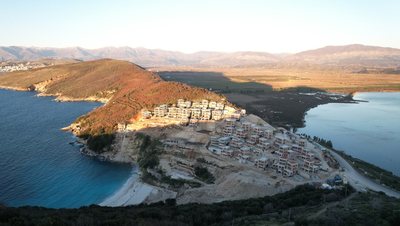
In the last decade, a growing trend of state cooperation between Albania and Israel has been observed. The rapprochement between the two countries is also accompanied by an increased interest of the Israeli private sector in investing in Albania.
For years, an increase in state cooperation between Albania and Israel has been clearly perceived. The increase in cooperation is evidenced by more frequent contacts at the state level, accompanied by several cooperation agreements and concrete joint projects.
Recently, Israeli interest is becoming more visible in the private sector, with investment initiatives in the financial sector, real estate, or the security-related industry sector.
"Monitor" addressed a request to the Israeli Embassy in Tirana for an interview regarding the progress and prospects of economic relations between the two countries and the potential for increasing Israeli investments in our country.
This request did not receive a response from the Israeli Ambassador to Albania, Galit Peleg.
However, information coming from the market shows signals of a trend towards an increase in the presence of Israeli capital in the Albanian economy.
Israelis want to set up digital bank
This year, investors from Israel have officially expressed interest in entering the Albanian banking sector.
An application has been officially submitted to the Bank of Albania by an Israeli entity represented by Gal Bar Dea, who until a few months ago held the position of General Director of One Zero Digital Bank.
Contacted by "Monitor", the selected local leaders stated that at this stage they do not wish to comment on the details or objectives of the project.
It is estimated that the model that Israeli investors want to build in Albania is similar to the digital bank One Zero Digital Bank.
One Zero is a relatively new bank, founded in 2019 as the first digital bank in Israel, but it has quickly shown ambitious expansion plans in other markets, including a joint project to establish a digital bank in Italy, in collaboration with the Italian bank Banca Generali.
However, the unfavorable geopolitical environment and high tensions in the Middle East have caused the Israeli bank to suspend expansion plans in foreign markets for the time being.
The former CEO, Gal Bar Dea, left precisely because of One Zero's withdrawal from the international expansion strategy, and it seems that the interest in entering Albania is part of efforts to build a similar digital banking model in other countries, but independently of One Zero.
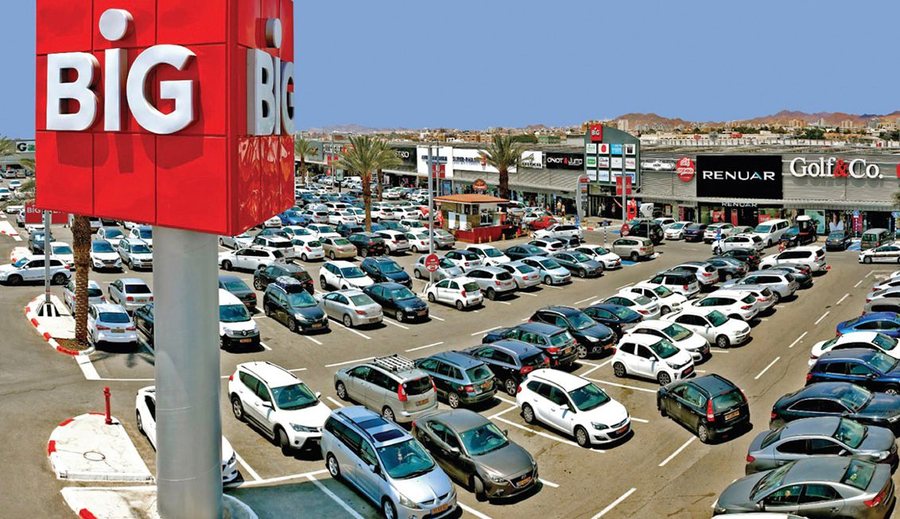
Big Shopping Centers will enter Albania
Israeli business group Big Shopping Centers will enter the Albanian market in a joint venture with Albanian business group BALFIN.
Israelis will become shareholders in one of BALFIN's newest ventures, the company Retail Park Shkodra.
In June, the parties notified the Competition Authority of the creation of the joint venture CEE - BIG - BALFIN Holding Development, an investment company, established under Hungarian law and jointly owned by BALFIN and CEE - BIG, for the purpose of developing, owning and managing investments in business parks in Albania.
CEE - BIG BV is a company registered in the Netherlands, established under Dutch law and represents the European branch of the Israeli group BIG Shopping Centers.
BIG Shopping Centers is a company listed on the Tel Aviv Stock Exchange, with a net worth of approximately 3 billion euros. The group is present in Europe through BIG Europe and its subsidiaries.
According to information on the company's website, BIG Europe's subsidiaries and sister companies (mainly CEE-BIG and AFl Properties) own and manage a portfolio of close to 50 active projects in Central and Eastern Europe (retail parks, shopping malls and office parks) and 10 light industrial buildings in France.
In addition, CEE's portfolio includes 20 retail and office projects under construction, as well as additional land in the early stages of development, including renewable energy.
BIG Europe established its new European headquarters in the summer of 2023, with the clear aim of investing capital and growing the company.
Its main focus will continue to be on the Eastern European markets.
The company subject to this transaction, Retail Park Shkodra, has as its primary activity the development and leasing of retail and commercial services spaces, in a format conceived as a "retail park".
The parks will consist of commercial units, which will be leased to independent retail operators, under special lease agreements.
Retail Park Shkodra was founded in April of this year and currently has the BALFIN group as its sole shareholder, pending the finalization of the transaction for joint control with CEE - BIG.
Retail Park Shkodra is the first company to be controlled by CEE - BIG - BALFIN Holding Development Ltd. and represents the first concrete project implemented within the framework of the cooperation between BALFIN and BIG.

Shareholder from Israel in Timak
One of the few well-known names in Israeli entrepreneurship for his activity in Albania is businessman Ron Yeffet.
In the middle of this year, he signed an agreement to purchase 49% of the shares in the companies Timak and Timak Special Vehicles, from Albanian businesswoman Arjeta Puca.
The main object of activity of these companies is the production, conversion and assembly of metal and plastic constructions for all types of machinery and vehicles, with the aim of adapting them for special uses, such as military ones, ambulances, fire trucks, cleaning vehicles, etc.
In the structure of Albanian exports to Israel, a significant share of means of transport stands out, which may be an indicator of Timak's existing relationships with entities in the Israeli market.
The reactivation of the security and defense products industry in Albania could bring new perspectives for cooperation in this direction.
Timak is moving towards establishing a joint venture with the newly established state-owned security and defense company, KAYO.
Investors from Israel are interested in the property market
The interest of Israeli investors is also extending to the real estate market in Albania.
Sources from the Albanian Real Estate Association (NAREA) tell "Monitor" that entities from Israel are exploring the Albanian market, with the aim of entering the construction and property development market.
More specifically, the entities in question are interested in becoming part of the real estate projects being developed by the Albanian Investment Corporation (AIC).
The Albanian government has transferred several existing state-owned lands and properties to AIC, with the aim of developing new real estate projects on their surface, where the state will be a shareholder, precisely through AIC.
Sources say that investors from Israel have shown interest in developing properties for rental purposes, especially for offices and affordable accommodation, for example for students or digital nomads.
There are also signals from the market about investments by Israeli citizens in residential real estate in the coastal area.
However, NAREA and its member real estate agencies are unable to confirm whether there is a genuine trend of Israeli citizens investing in real estate in our country.
Experts: Israeli investors seek diversification into new regions
For more information about economic cooperation and Israeli investments in Albania, "Monitor" sent an interview request to the director of the Albanian Investment Development Agency (AIDA), Laura Plaku. The request did not receive a response from her.
However, Genti Beqiri, former director of AIDA, says that the last decade has seen a greater rapprochement between Albania and Israel, not only on a political level, but also economically.
"I recall here the visit of Prime Minister Rama in December 2015 to Tel Aviv, in which I was part of the delegation.
This increased interest is related to the fact that Albania, in political terms, understands the importance and weight of Israel, their expertise in many sectors, but they also see our country as a market with fully undeveloped potential, which offers new opportunities at a time when Israeli investors are seeking diversification and security in new regions.
In addition, the historical and friendly relations between the two countries create a climate of trust, which is essential to encourage long-term investments. Also, they are increasingly seeking multidimensional support in the Balkans and Europe", says Mr. Beqiri.
According to him, any increase in economic presence is also associated with geopolitical factors:
"For Israel, the Balkan region represents a strategic point for expanding economic and diplomatic ties in Europe.
For Albania, this cooperation offers not only new investments, but also a kind of additional security through strengthening relations with a country with long experience in managing economic and national security challenges.
The effects can be positive in many directions: increasing technological standards, opening new markets, but also an increase in Albania's international influence, through new strategic partnerships," he says.
According to Mr. Beqiri, there are several sectors where Israeli expertise and experience could match well with Albania's needs and potential:
"In agriculture and water supply and irrigation technologies, Israel is known for innovation and efficiency, which would bring direct benefits to the modernization of our country's agri-food sector.
Information technology and renewable energy are other areas where Israeli investors can bring added value, both through digital innovation and sustainable energy solutions.
Also, the telecommunications and cybersecurity sectors are undoubtedly among the most advanced in the world, which we greatly need today.
Finally, the tourism and support services sector also has great scope for investment, given the growing international interest in Albania as a destination," he says.
Israeli investments, still modest figures
Despite the growing interest, if we look at official statistics, the value of direct investments from Israel in Albania remains at modest levels. According to data from the Bank of Albania, at the end of the first quarter of this year, the stock of Israeli investments was worth 6 million euros.
Although still modest in numbers, the value of Israeli investments has been increasing in recent years and has reached a figure that to date represents the highest historical level.
Official statistics on Foreign Direct Investment, however, do not always provide an accurate idea of the origin of foreign investments. The criterion according to which the Bank of Albania determines the origin of the investment is the country where the joint-stock company is registered.
However, in international investments there is a widespread practice of registering the controlling companies of these investments offshore (in other countries). For this purpose, countries that have a favorable jurisdiction in certain aspects are preferred.
Such examples are fiscal incentives, agreements to avoid double taxation or confidentiality rules regarding the origin and control of capital.
In addition to small countries (so-called tax havens), the list of countries preferred for registering holding companies that control international investments also includes European countries such as the Netherlands, Switzerland, or to a lesser extent, Cyprus.
Such a practice is also the main reason why the Netherlands is one of the largest foreign investors in Albania, with a total investment stock of more than 2.5 billion euros.
For this reason too, it is not excluded that the value of Israeli capital investments in Albania is higher than official figures indicate.
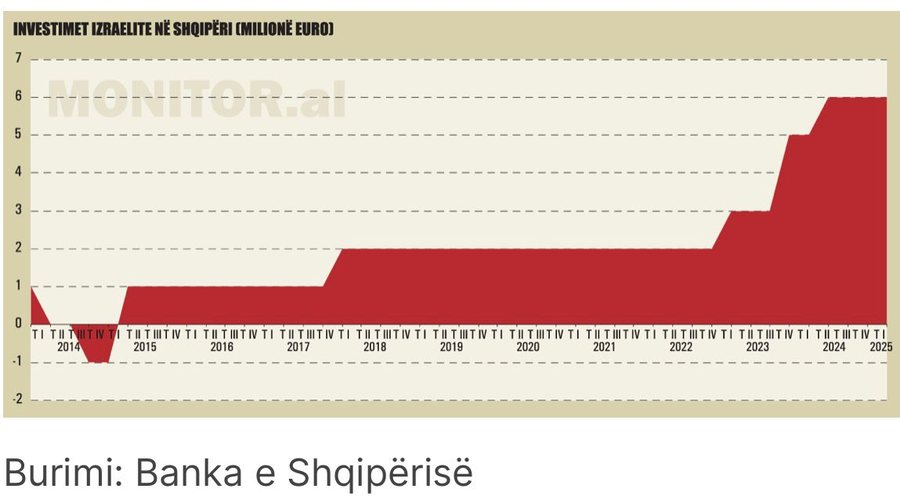
39 businesses with Israeli shareholders
Based on data from the Institute of Statistics (INSTAT), at the end of last year, 39 companies with Israeli capital were operating in Albania. Of these, 31 companies operate in the service sectors, while 8 of them operate in manufacturing activities.
In 2023, the number of active businesses with capital from Israel was 41.
In terms of business size, measured by the number of employees, the vast majority of Israeli entities are small enterprises, with one to four employees. Only three of them are large enterprises, with more than 50 employees.
Foreign trade: imports from Israel dominate
According to data from INSTAT, last year, trade between Albania and Israel reached 5.24 billion lek, an increase of 12% compared to the previous year.
Trade has historically been dominated by imports from Israel to Albania. Last year, they reached a value of 4.85 billion lek, an increase of 12.2% compared to the previous year.
Imports from Israel have shown an increasing trend after the pandemic year 2020, but without reaching the highest historical levels of the 2018–2019 period.
Meanwhile, Albanian exports to Israel for 2024 were worth 386 million lek, up 10% compared to the previous year.
Although still a small value in relation to imports, exports to Israel last year reached a historic high.
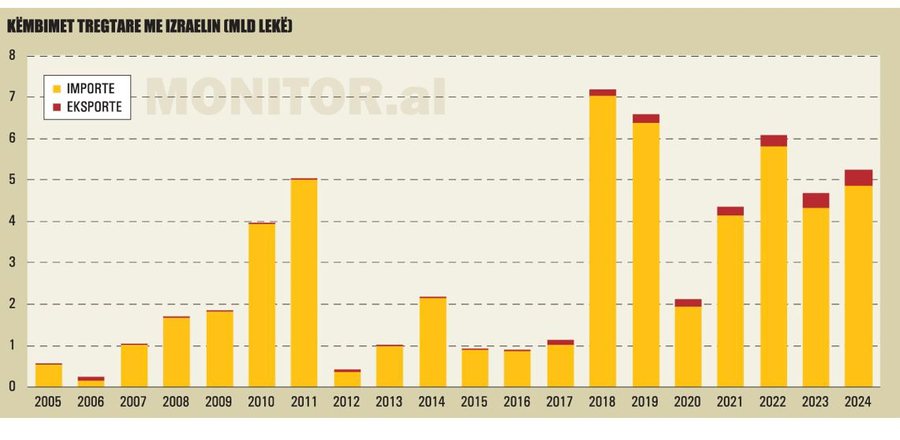
INSTAT data shows that Albania's imports from Israel consist mainly of products in the group "machinery, equipment, spare parts", with 41% of the total, "minerals, fuels, energy", with 31% of the total and "construction materials and metals", with 20% of the total.
At a more detailed level, according to the main statistical chapters, imports from Israel are dominated by three main product groups, which together account for approximately 90% of the total: machinery and electrical equipment and parts thereof, with 39% of the total value; mineral fuels, with 31% of the total; and iron and steel, with 20%.
The structure of exports from Albania to Israel is also led by the group "machinery, equipment, spare parts", with 34%, followed by "food, beverages, tobacco", with 26%; "construction materials and metals", with 12%; "chemical and plastic products", with 14%; and "minerals, fuels, energy", with 10%.
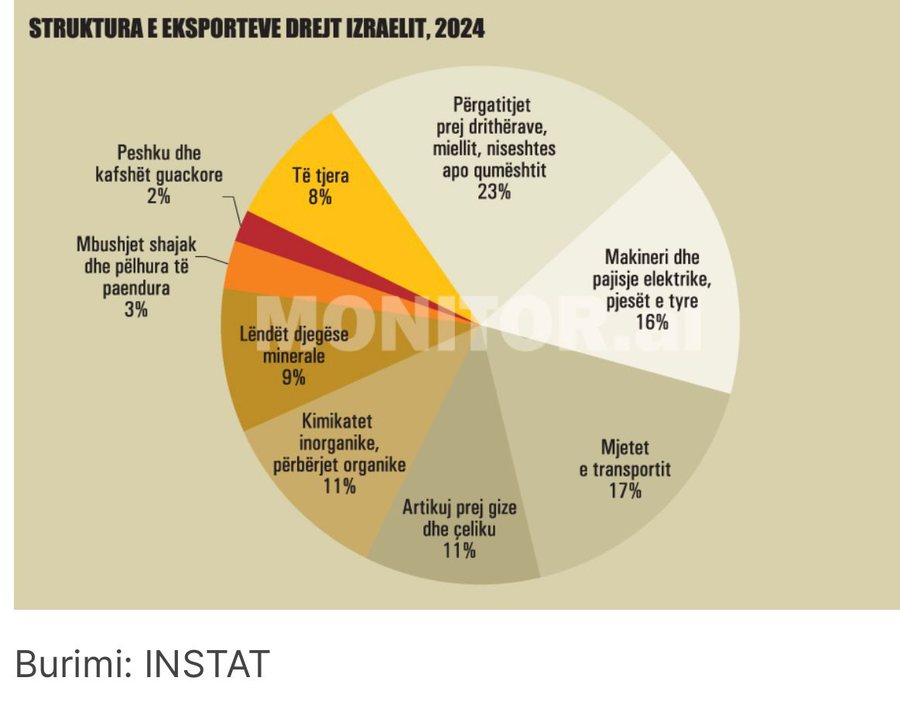
Although smaller in value, the structure of Albanian exports to Israel appears more diversified.
The main weight in exports during 2024 was occupied by the group "preparations of cereals, flour, starch or milk", with 23% of the total, followed by "means of transport", with 17% of the total; "electrical machinery and equipment and their parts", with 16%; "articles of iron and steel" and "inorganic chemicals, organic compounds", each with 11% of the total.
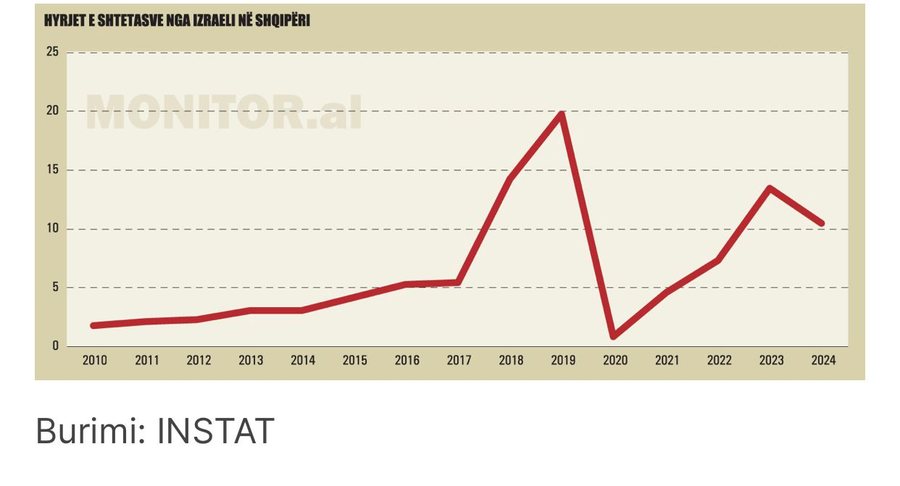
Tourism from Israel remains at modest levels
Especially after 2020, Albania has experienced a rapid increase in the number of foreign tourists. The growth of tourism has been among the sectors that have become the subject of cooperation initiatives between the two countries.
Last year, the Ministry of Tourism and Environment, in cooperation with the Albanian Embassy in Israel, under the slogan "Albania All Senses", organized a promotional meeting in Israel with tour operators from this country.
However, so far, it seems that tourism from Israel to our country remains in modest numbers.
The only statistical information on tourism, detailed by country of origin, is that on the arrivals of foreign citizens.
According to INSTAT, 10,504 entries of citizens from Israel to Albania were registered last year. Their number decreased by 22% compared to 2023.
The highest level of entries of Israeli citizens into Albania was recorded in 2019, with almost 20 thousand.
After the pandemic, the number of visits by citizens from Israel has gradually increased and reached five-digit levels in the period 2023–2024, but still remains far from the figure recorded in 2019. /Monitor/


